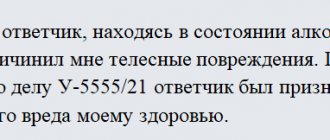Rosreestr carries out such a function as state land supervision, which actually consists of checking compliance with the law when persons use land in order to prevent unauthorized occupation of land plots, use for their intended purpose, etc.
ATTENTION : our lawyer will help resolve the dispute with Rosreestr, appeal the order of Rosreestr: professionally, on favorable terms and on time. Call today!
Unscheduled inspection of Rosreestr
To verify compliance with legal requirements in relation to land plots, Rossreestr conducts unscheduled inspections in the following cases:
- if a legal entity or individual entrepreneur was issued an order to eliminate violations and the deadline for its execution has expired.
- if an application has been received for granting legal status, special permission (license), issuance of a permit (approval).
- if information has been received about the emergence of a threat or harm to the life and health of citizens, harm to animals, plants, etc., as well as the threat or occurrence of an emergency situation of a natural or man-made nature.
- if the manager issued an order to conduct an unscheduled inspection on the basis of instructions from the President of the Russian Federation, the Government of the Russian Federation and the requirements of the prosecutor.
- if, based on the results of an administrative survey of the object of land relations, violations of the law for which liability is provided are established. An official can visually determine that, for example, he will move a fence and actually seize part of another land plot.
- if allegations of violation of property rights have been received, for example, that a plot of land has been occupied without permission.
- if a declaration on the use of the land plot is not submitted within the prescribed period. This applies to the so-called “Far Eastern hectare”.
- if a land plot of agricultural land is acquired at a public auction on the basis of a court decision to confiscate the land plot due to its non-use for its intended purpose or use in violation of legal requirements, or Rosreestr has information that the land plot is not used for its intended purpose within 3- x years or more.
Before conducting an unscheduled inspection under paragraphs 5 and 6, Rosreestr must coordinate its conduct with the prosecutor's office, and conducting an inspection under paragraph 8 does not require approval.
ABOUT SOME FEATURES OF APPEALS OF ROSRESTR REFUSALS IN COURT
| The material was prepared by Law Firm Logos lawyer Evgeniy Ivanov |
Robert Kiyosaki, an American economist whose books on the basics of business and investing were recognized as one of the best bestsellers by such reputable business publications as the Wall Street Journal and The Business Week, said: “There are 3 types of assets: business, real estate and securities.” .
And although, from his point of view, the strongest asset is business, the importance of real estate as an asset is difficult to overestimate even today, when newspapers every now and then begin to be full of headlines about its rapid decline in price. However, the realities of Russian reality are such that often even the owner of real estate
turns out to be, in fact, paralyzed, unable to manage the premises or building that belongs to him.
And the reason for this is not at all the corruption of officials or the imperfection of the state structure. Let's give a simple example: a commercial organization intends to sell a non-residential building owned by it
.
In the process of preparing the necessary documents, it turns out that the Unified State Register
of Rights to Real Estate and Transactions with It (hereinafter referred to as the Unified State Register, Register) contains outdated data on the area of the building, which does not reflect the changes resulting from the reconstruction.
This state of affairs can, at a minimum, slow down the deal indefinitely. From the point of view of the law, the building, information about which is contained in the Unified State Register, and the building that the owner intends to sell, are two different real estate objects with different characteristics. It seems that changes need to be made to the Registry
and this will eliminate the problem. However, the registering authority (and this is the Office of the Federal Service for State Registration of Cadastre and Cartography for the relevant constituent entity of the Russian Federation) is guided by its own interpretation of the current Federal Law “On State Registration of Rights to Real Estate and Transactions with It,” as well as the Rules for maintaining the Unified State Register of Rights to Real Estate real estate and transactions with it, which in the situation under consideration may lead to the suspension of registration, and then the refusal to make appropriate changes to the Unified State Register with reference to the fact that as a result of the reconstruction carried out by the owner, a new property was formed.
The mechanism for protecting
the rights of the owner
for such cases is provided for by the aforementioned Federal Law “On State Registration of Rights to Real Estate and Transactions with It” and it consists of
appealing the registration authority’s refusal
through the court. The legislator's position regarding the consequences of building reconstruction is quite unambiguous - as a result of reconstruction, a new property is not created. For example, Article 1 of the Town Planning Code of the Russian Federation N 190-FZ dated December 29, 2004 defines and separates the concepts of construction and reconstruction: “construction” - the creation of buildings, structures, structures (including on the site of demolished capital construction projects) ( clause 13); “reconstruction” is a change in the parameters of capital construction projects, their parts (height, number of floors (hereinafter referred to as the number of floors), area, production capacity indicators, volume) and the quality of engineering and technical support (clause 14).
The concept of “reconstruction” is also contained in other acts. Thus, in accordance with the Rules for the inspection of load-bearing building structures of buildings and structures, approved by Decree of the State Construction Committee of the Russian Federation dated August 21, 2003 No. 153, reconstruction is a change in the operating conditions of buildings, maximum replenishment of the loss from physical and moral wear and tear. In a letter from the State Construction Committee of the Russian Federation dated April 28 1994 No. 16-14/63.1 states that the reconstruction of a building is a complex of construction work and organizational and technical measures associated with changing the main technical and economic indicators of the building or its purpose. It would seem that it would not be difficult to prove Rosreestr wrong
, relying on the norms of law and by-laws.
However, the existing judicial practice on the issue under consideration is far from uniform. Some courts, when resolving such cases, come to the conclusion that as a result of reconstruction, a new property is not created
(Resolution of the Federal Arbitration Court of the Volga-Vyatka District dated April 10, 2006 in case No. A31-8010/04, dated November 16, 2007 in case No. A28-2598/2007-48/21; Resolution of the Federal Arbitration Court of the West Siberian district dated July 25, 2007 in case No. F04-7712/2005 (36537-A45-24); Resolution of the Federal Arbitration Court of the Volga District dated October 12, 2010 in case No. A55-2070/2010, Resolution of the Ninth Arbitration Court of Appeal dated September 14, 2010 No. 09-AP-17585/2010-GK, dated November 16, 2010 in case No. A40-173922/09-64-1138). According to another part of the courts, the creation of a new property as a result of reconstruction is possible (Resolutions of the Federal Arbitration Court of the Moscow District dated January 26, 2009 No. KG-A40/13064-08, dated September 3, 2010 No. KG-A40/9823-10 , Resolutions of the Federal Arbitration Court of the North-Western District dated June 25, 2009 in case No. A13-5109/2008, dated October 23, 2009 in case No. A21-412/2009, dated June 28, 2010 in case No. A56- 83321/2009, dated October 4, 2010 in case No. A66-45/2010).
A detailed analysis of the listed judicial acts allows us to conclude that when considering cases of this category, the courts take into account a number of circumstances, including: the volume and nature of the reconstruction carried out; availability of permits for reconstruction; the impact of reconstruction on the external boundaries of the property; the impact of reconstruction on the area of the property.
To one degree or another, each of the listed circumstances can be interpreted by the court both in favor of the owner and in favor of the registering authority.
For example, in accordance with paragraph 2 of Article 51 of the current Town Planning Code (Federal Law of December 20, 2004 No. 190-FZ), construction and reconstruction of capital construction projects are carried out on the basis of a construction permit, with a number of exceptions also provided for in Article 51 of the Town Planning Code . Such exceptions include, in particular, the case provided for in subparagraph 4 of paragraph 17 of this article when changes to capital construction projects and (or) their parts do not affect the structural and other characteristics of their reliability and safety and do not exceed the limit parameters of permitted construction and reconstruction established by the town planning regulations. It seems that with a competent construction of the proof process, even reconstruction carried out without the proper building permit can be legalized, for example, by presenting a specialist’s conclusion that as a result of the reconstruction, the structural and other reliability and safety characteristics of the building are not affected.
Therefore, the outcome of the case is positive for the owner
largely depends on how competently and clearly his position is formulated, how complete the evidence base presented by him is, whether he can fully use such means of proof as a specialist’s opinion or even the results of a forensic examination.
In addition, it is necessary to take into account that appealing the refusal of Rosreestr, as well as challenging the actions (inaction) and decisions of other state bodies, local governments and officials, belongs to the category of cases arising from administrative and other public legal relations. In other words, the registration authority’s refusal cannot be appealed in the usual manner
, by filing a simple claim, since such cases are considered according to special rules established by Chapter 24 of the Arbitration Procedural Code of the Russian Federation. For such cases, there are special deadlines for filing relevant applications and their consideration, special rules on the distribution of the burden of proof, etc.
That is, for a positive outcome of the case, the owner must also comply with all the procedural subtleties so that a claim that is essentially correct is not rejected by the court only because of non-compliance with the rules established by the Arbitration Procedural Code of the Russian Federation. It is obvious that conducting cases in this category involves the need to take into account a huge number of different legal nuances and fulfill a number of mandatory requirements. Improper conduct of a case in court can paralyze not only the course of the trial, but also the exercise by the owner of his powers in relation to the real estate he owns. It seems absolutely unreasonable for an ignorant person to independently conduct such a case without qualified legal assistance.
The procedure for appealing the actions of Rosreestr
The actions of Rosreestr officials can be appealed administratively and (or) judicially if a person believes that his rights are being violated.
In pre-trial proceedings, a person may file a complaint directly with Rosreestr (territorial body). Also, a complaint against the actions of Rosreestr can be filed with the prosecutor's office.
A pre-trial complaint can be sent by mail, submitted electronically, in person or through a document acceptance window. When filing a complaint, this fact must be recorded by marking the applicant’s copy. If the complaint is sent by mail, it is better to send it by registered mail with a list of documents.
The complaint must indicate to whom it is addressed, who the applicant is, set out the circumstances relating to the inspection and indicate the reasons why the applicant does not agree with the actions of Rosreestr.
USEFUL : watch a video about challenging decisions of government bodies, write your question in the comments of the video today
Documents required to apply to the appeal commission
The list of documents for filing a complaint with the appeal commission of Rosreestr is given in Appendix No. 2 of Order No. 193 of the Ministry of Economic Development.
It includes:
- An application for appeal drawn up in accordance with the established standard form.
- When submitting an application, an official representative will need a notarized power of attorney issued in his name.
During the consideration of the appeal, the following additional documents are filled out by the appeal commission staff:
- Registration book.
- A protocol of a meeting.
- A documented decision made based on the results of the review.
Statement of claim to challenge the decision of Rosreestr
Challenging the decision of Rosreestr in court is carried out by filing an administrative claim (hereinafter referred to as the application) in the order of administrative proceedings regulated by the CAS of the Russian Federation or by filing an application in the procedure of arbitration proceedings regulated by the Arbitration Procedure Code of the Russian Federation. The type of proceedings depends on whether an individual or a legal entity goes to court.
When challenging a decision of Rosreestr, the application must indicate which rights, freedoms and legitimate interests of the person applying to the court have been violated or obstacles to their exercise and implementation have been created, or responsibilities have been unlawfully imposed on the person.
IMPORTANT: the application must be submitted within 3 months from the day the person learned of the violation of his rights. However, it is better to go to court as early as possible.
Requirements for the application form are specified in the procedural codes:
- the name of the court to which the application is being submitted is indicated;
- information about the plaintiff (applicant) and defendant (interested person);
- the text of the application sets out the circumstances of the case, what violations were committed by the inspection body, what rights of the applicant were violated;
- the pleading part specifies the requirements for recognizing the decision as illegal or invalid.
- so to speak, general details for the application form are indicated, which include a list of attached documents and signature details.
How is the quorum of a contested meeting determined?
In the owner’s decision on issues put to vote, in accordance with clause 2, part 5.1 of art. 48 of the Housing Code of the Russian Federation, information about the document confirming the right of ownership of the voting participant to the premises in the house must be indicated.
If there is no such information on the ballot, this is grounds for excluding such a ballot from the vote count. If the court has doubts about the submission of ballots within the voting period, it invites the parties to present additional evidence or puts for discussion between the parties the question of questioning the owners who signed the ballots.
The mere absence of a date for filling out a ballot, in the presence of other evidence confirming the filing of ballots within the established period, is not considered a basis for invalidating the decision.
If the parties have not provided evidence of compliance with the requirements of the law, the quorum of the contested meeting is determined based only on those decisions of the owners of the premises of a given apartment building, which indicate the date of their filling (determination of the Supreme Court of the Russian Federation of July 17, 2018 No. 5-KG18-51).
How many votes of owners are used to make decisions at the OSS?
21170583
Response to Rosreestr's order
If Rosreestr detects violations of land legislation, the specified body issues an appropriate order to the person to eliminate such violations.
The order of Rosreestr is mandatory. However, if a person believes that the order is illegal, it should be appealed in accordance with the established procedure.
The controversial question is, what if the order is illegal and is not appealed?
Often courts in their decisions refer to the fact that the order is binding and has not been appealed by the person, therefore, it is legal. If, as a result of the inspection, a person is given an order, and he does not agree with it, he must put it in writing in the form of a response to the order or an objection, setting out all his arguments.
You should make sure that you receive an appropriate response to the order from Rosreestr. Perhaps, when Rosreestr receives a response to the order, it will independently cancel its order, agreeing with the applicant’s arguments.
Let's sum it up
Here's what you need to remember before you go to challenge the OSS decision in court:
- A person challenging the decision of the OSS MKD must first inform the other owners of the premises in the house of his intention to file a claim in court. Otherwise, the claim will remain without progress.
- The defendant in a claim to invalidate a decision of an MKD meeting may be the initiators of the controversial meeting or the persons who led them.
- If the signature of the initiator of the OSS in the protocol is forged, the court will involve as a defendant the MA that received the house on the basis of the contested decision.
- OSS participants who voted for the decision can join the case as third parties without independent claims on the defendant’s side, and their opponents have the right to join the claim as a co-plaintiff until the decision is made.
- The subject of the challenge is the decisions taken, not the OCC protocol.
- If the ballot does not contain information about the document confirming the ownership of the premises in the apartment building, this is considered grounds for excluding such a ballot from the vote count.
- The court will invite the parties to provide additional evidence and discuss the issue of questioning the owners if it doubts that the ballots were submitted on time for the voting.
Consequences of failure to comply with the order
If the order is not fulfilled on time, the person will be held administratively liable and an administrative fine will be imposed. For officials, an alternative punishment is also provided in the form of disqualification for up to 3 years.
Part 25 of Article 19.5 of the Code of Administrative Offenses of the Russian Federation provides for the following fines:
- for citizens from 10,000 rubles. up to 20,000 rubles;
- for officials from RUB 30,000. up to 50,000 rubles;
- for legal entities from 100,000 rub. up to 200,000 rub.
If a person agrees with the order, but for some reason does not meet the deadline for its execution, he should apply for an extension of the deadline for fulfilling the relevant order.





